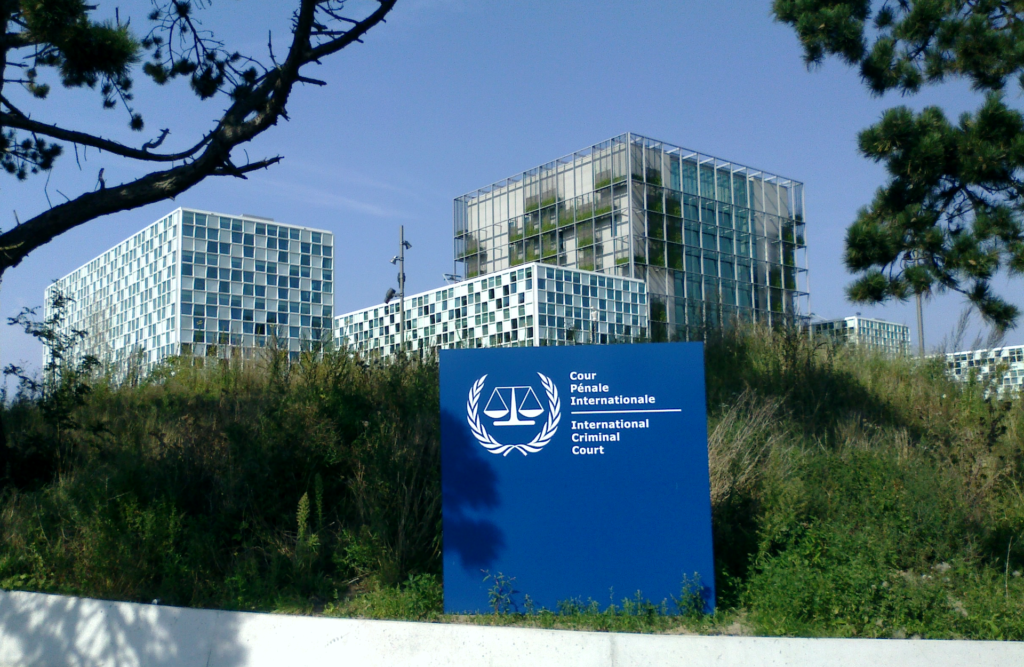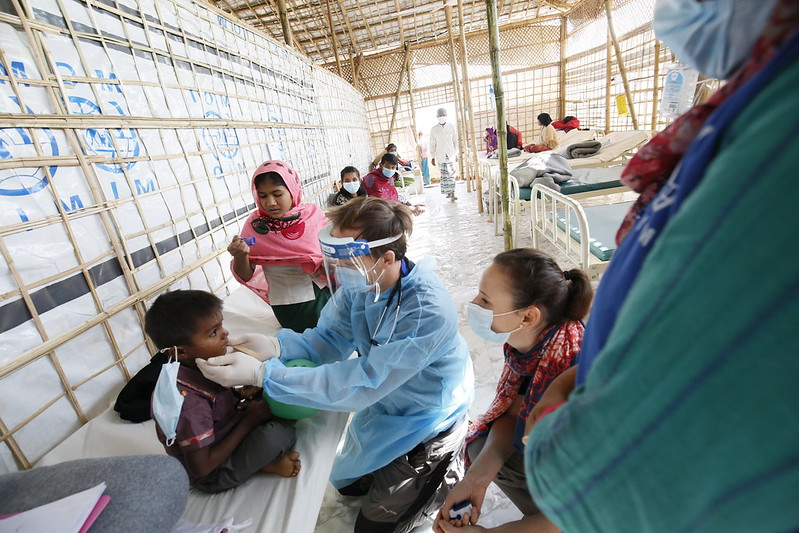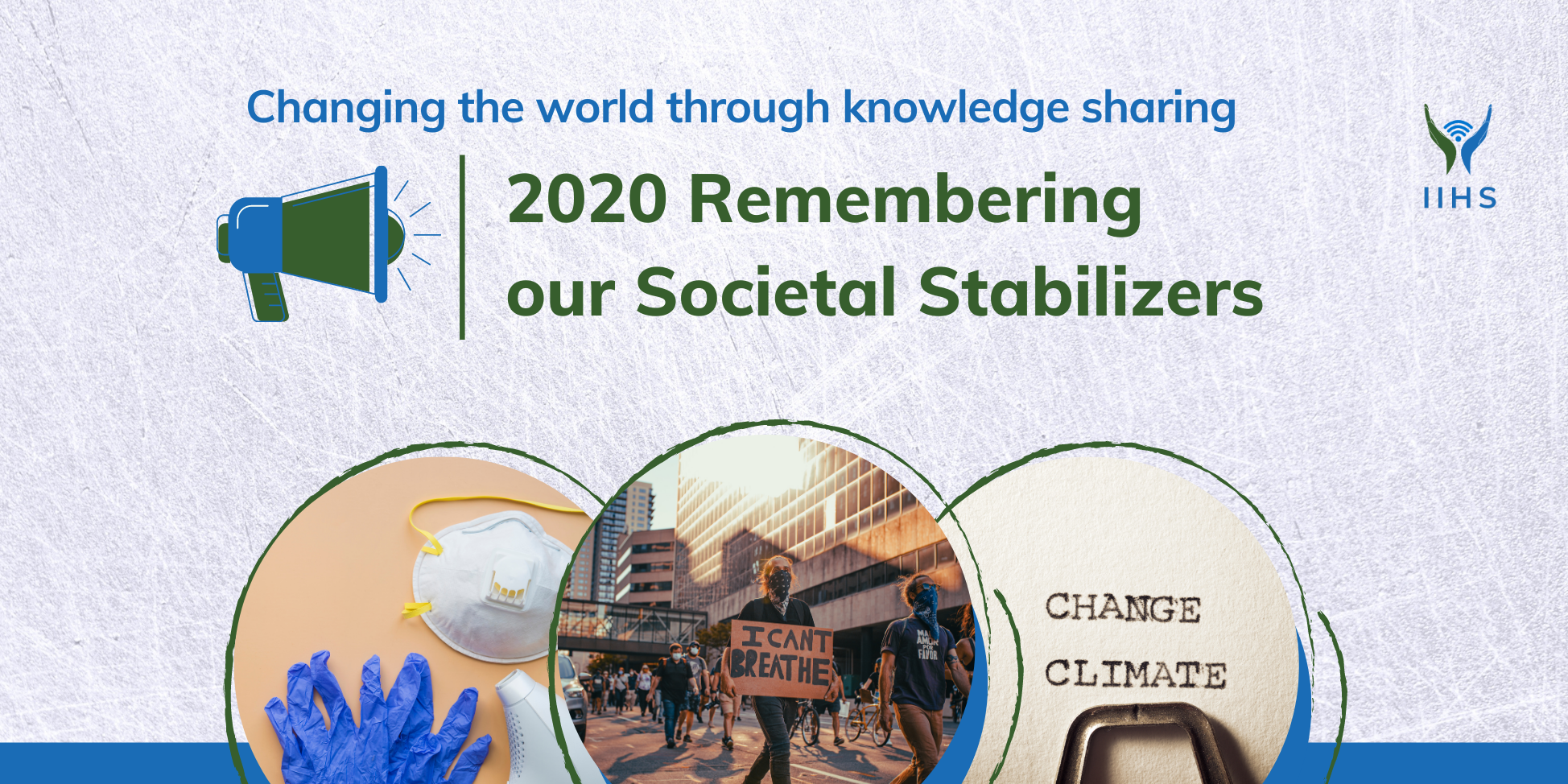The first article in our 2020 series, Remembering our Societal Stabilizers was written by IIHS Advocacy Associate, Ellen Chambers, at the beginning of the year. While much has changed since then, the message is as relevant and clear now as it was on the day it was written and we urge the world not to forget the threats facing human security that existed before the pandemic and continue to persist today. We invite you to engage with this stabilizer and consider what steps we ought to take in order to move towards security for all as we go into 2021.
The 2020 link: Responsibility to Protect
2020 marks fifteen years since UN Member States unanimously embraced the responsibility to protect its populations from genocide, war crimes, ethnic cleansing, and crimes against humanity at the 2005 World Summit. Conceived from the idea that state sovereignty is not absolute, Responsibility to Protect recognizes that non-interference is unacceptable in situations where civilian populations are subjected to mass atrocities. In recent years, substantial progress has been made in terms of conceptualizing the Responsibility to Protect, through the development of frameworks and assessments at the national, regional, and international level aimed at protecting populations from atrocity crimes. However, since its inception, there has been a growing gap between rhetoric and practice. A more comprehensive and operational approach that prioritizes atrocity prevention measures is essential for states to successfully translate Responsibility to Protect commitments into action.
Since the adoption of the Responsibility to Protect, forced displacement trends have been heading in the wrong direction, with the world now bearing witness to the highest number of people fleeing conflict and persecution on record – double the level of 20 years ago. In Myanmar alone, more than 700,000 people, the majority of whom are Rohingya, have fled Rakhine State into neighboring Bangladesh since August 2017, to escape atrocity crimes perpetrated by Myanmar’s military. Myanmar’s Rohingya population has been subjected to widespread indiscriminate killing, torture, sexual violence, destruction of property, and arbitrary arrest, which, according to a UN-mandated Independent International Fact-Finding Mission on Myanmar constitutes war crimes, crimes against humanity, and genocide. Despite the situation intensifying in 2017, such grave human rights abuses are not an isolated experience for the Rohingya. This group of people has endured decades of state-sanctioned persecution, including targeted violence, restricted movement, and the denial of social services and citizenship, effectively rendering them stateless.

Image: Wikicommons | Rohingya refugees
The government’s inaction to hold perpetrators accountable reflects a grave failure of its Responsibility to Protect, significantly undermining prospects for sustainable peace. In light of such a failure, the international community must honor its 2005 commitments and take appropriate collective action to not only ensure the physical protection of vulnerable populations but also to ensure that such atrocities do not happen again. Atrocity prevention must therefore be at the forefront of the international community’s Responsibility to Protect agenda, for it is far more sustainable from a peacebuilding perspective to deter such serious crimes than to extinguish them. In the case of Myanmar, the prioritization of accountability will go a long way in preventing the recurrence of atrocity crimes by ending a longstanding culture of impunity. Accountability will serve to restore the rule of law, generate respect for human rights, create more favorable conditions for the repatriation of Rohingya refugees, and ultimately contribute to lasting peace in Myanmar.
A number of international justice initiatives recently instituted in response to the situation in Myanmar have gained early momentum. As three parallel judicial processes advance at the International Criminal Court (ICC), International Court of Justice (ICJ), and in Argentinean courts, each has tremendous potential to serve as a positive precedent for successful intervention under Responsibility to Protect precepts.
On the 4th of July 2019, the prosecutor of the ICC filed a request to open an investigation into the situation in Bangladesh and Myanmar, which was subsequently authorized on the 14th November 2019. Myanmar is not a state party to the Rome Statute and the ICC can only exercise jurisdiction over crimes in which at least one element of conduct is committed in the territory of a state party – in this case, Bangladesh. Accordingly, the court will examine a more narrow set of alleged crimes than other judicial mechanisms. This will include crimes against humanity, deportation, other inhumane acts, and the persecution of the Rohingya since 2016. The ICC case will also focus on individual responsibility, which could result in arrest warrants for those who were complicit in the crimes. However, it is unlikely that Myanmar will hand over any suspects given its rejection of the court’s jurisdiction. This will make enforcing arrest warrants and any subsequent sentences particularly challenging. Nonetheless, an arrest warrant would place increased pressure on the government and restrict the ability of those accused to travel internationally.

Image: Wikicommons
A separate case at the ICJ, instituted on the 11th November 2019 by Gambia on behalf of the Organisation of Islamic Cooperation, will focus exclusively on state responsibility for alleged violations under the Convention on the Prevention and Punishment of the Crime of Genocide (hereinafter “Genocide Convention”). The court will examine whether Myanmar committed genocide or otherwise violated its international treaty obligations by failing to prevent or punish genocide. Although a ruling could take years, Gambia requested the court order provisional measures, which would offer immediate protections to the Rohingya until a final judgment is rendered. Oral hearings on the request for provisional measures took place from the 10th to the 12th of December 2019. Utlimately, a decision was handed down by the Court on the 23rd of January 2020. The Court ordered that Myanmar must “take all measures within its power” to prevent the commission of acts enshrined in Article 2 of the Genocide Convention against the Rohingya.[1] The Court further ordered that Myanmar must ensure its military does not commit, attempt to commit, or conspire to commit genocide and that all evidence must be preserved and not destroyed.[2] Myanmar is required to submit a report to the Court concerning its implementation of the measures indicated within four months, and a report every six months thereafter. Looking further ahead, a final judgment on the case is legally binding on all Parties. Failure to comply with the court’s ruling may result in the matter being referred to the UN Security Council for enforcement purposes. It is likely, though, that any Security Council action would be vetoed by China, which maintains close relations with Myanmar’s leadership. Nevertheless, ignoring the court’s decision would have significant reputational and diplomatic consequences for Myanmar.
Accountability has also been brought forward in Argentina. On the 13th November 2019, a complaint was filed in Argentina’s Federal Court under the principle of universal jurisdiction by the NGO, Burmese Rohingya Organisation UK. Universal jurisdiction recognizes that the nature and magnitude of certain crimes are so serious that they can be prosecuted anywhere. The lawsuit calls for Aung San Suu Kyi and General Min Aung Hlaing, among several other top military and political officials, to be investigated and prosecuted for genocide and crimes against humanity. However, Myanmar has rejected the case on jurisdictional grounds, which will hinder the court’s ability to enforce the judgment and any arrest warrants. Punishment would seemingly require Myanmar’s cooperation regarding the extradition of perpetrators or for perpetrators to otherwise enter the territory of Argentina. Although such scenarios are unlikely, the case demonstrates an important commitment to accountability, ending impunity, and ultimately to the Responsibility to Protect.

Image: Flickr Creative Commons | Rohingya refugees treated for diphtheria
Protecting populations from mass atrocities encompasses an inherent ability to deter perpetrators from committing grave crimes. Deterrence, however, is severely undermined by impunity, which erodes the rule of law and signals to perpetrators that ceasing criminal actions is neither urgent nor necessary. A culture of impunity can also weaken other important Responsibility to Protect efforts, such as peacekeeping operations, peace process engagement, and early action strategies. Continued efforts to operationalize and strengthen the Responsibility to Protect must therefore prioritize accountability. The absence of accountability in Myanmar will increase the likelihood of future atrocities against the Rohingya, and could contribute to a perpetual cycle of violence and conflict. Perpetrators need to know that there are costs to be paid for committing atrocities and ultimately need to be persuaded from engaging in or failing to prevent such behavior.
While primary jurisdiction for prosecuting the most egregious crimes lies with the national criminal justice system of the state concerned, Myanmar has demonstrated an inability and lack of genuine willingness to hold perpetrators to account. Recourse to international justice mechanisms is therefore necessary for meaningful accountability. However, this should be considered complementary to – and not a substitute for – domestic transitional justice processes and peacebuilding efforts. By the same token, accountability is just one critical aspect of what should be a comprehensive Responsibility to Protect strategy to permanently prevent mass atrocities in Myanmar. The Responsibility to Protect intervention needs to be a sustained engagement with a view towards achieving long-term peace.
The relationship between justice and peace is widely debated. Some argue that criminal prosecutions for atrocity crimes can serve as an obstacle to negotiating peace, while others contend that peace without accountability will be short-lived. When considering the situation in Myanmar, it is clear that crimes have gone unchecked for far too long, which has only reinforced their repeated occurrence. Peace and justice should be a mutual and complementary objective. Accountability for crimes against the Rohingya has the potential to transform behavior towards other ethnic groups in Myanmar, thereby enhancing the possibility for sustained nationwide peace.
[1] Application of the Convention on the Prevention and Punishment of the Crime of Genocide (The Gambia v. Myanmar), Request for the Indication of Provisional Measures, Order, ICJ Reports 2020, p. 25, para. 86(1).
[2] Application of the Convention on the Prevention and Punishment of the Crime of Genocide (The Gambia v. Myanmar), Request for the Indication of Provisional Measures, Order, ICJ Reports 2020, p. 25, paras. 86(2) and 86(3).







